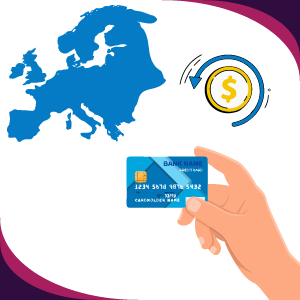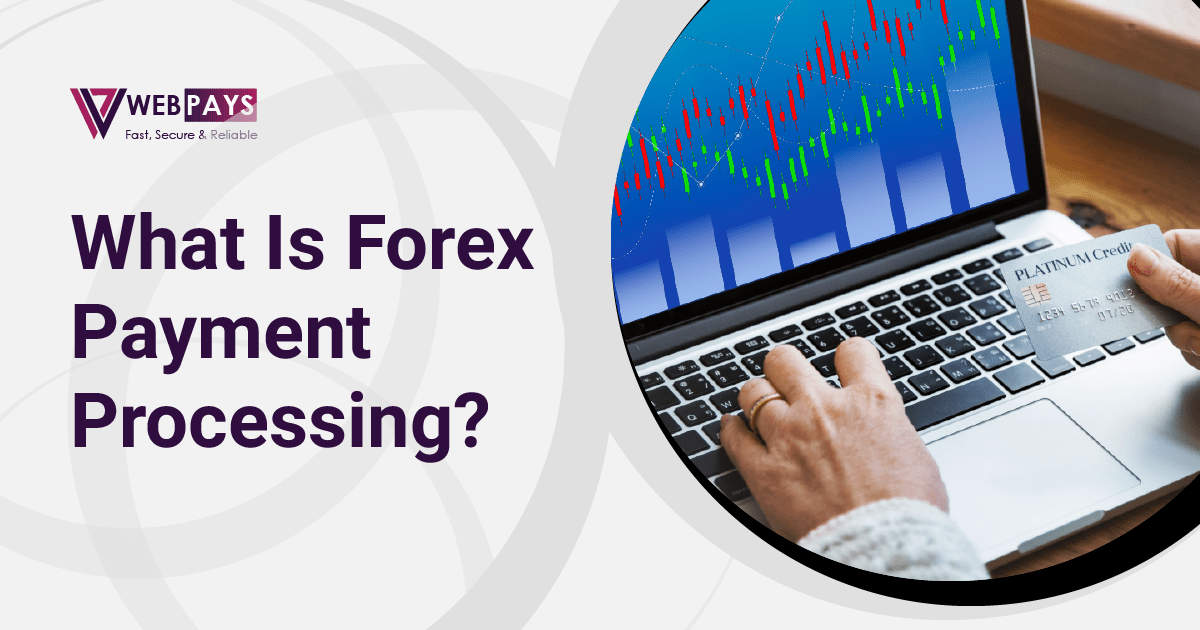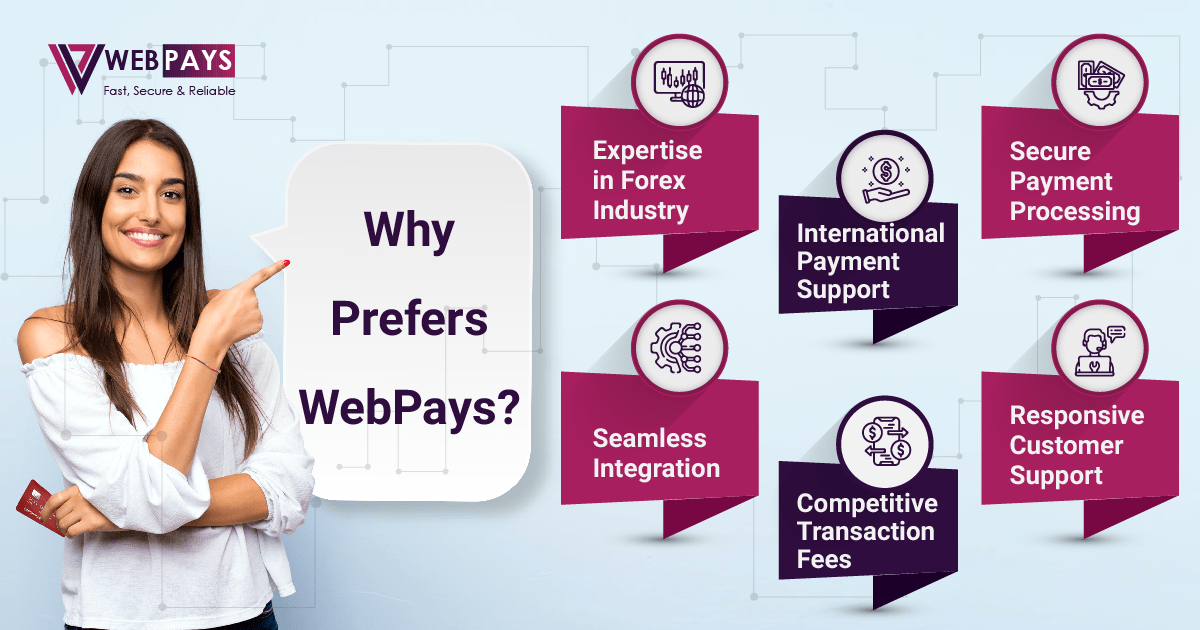Exploring the Forex Industry and the Importance of Forex Payment Processing

Introduction
Before diving into the Forex Merchant Account, let us know about the forex industry. The largest economic market in the world is the forex industry which is now worth around $1.9 quadrillion. The forex industry has a daily turnover of $7.5 trillion, as per the Bank for International Settlements Survey. There are presently around 170 various currencies being exchanged in the forex industry. 86% of traders prefer MT4, making it the largest forex trading platform. MT5 is the second-ranking platform that, has 6% of merchants preferring it.
The most prevalent currency in the forex industry is the US dollar which drives more than 88% of businesses globally. The Euro is the second-ranking currency, tracked by Europe, the Japanese Yen, British Pound, Australian Dollar, Canadian Dollar, and Swiss Franc in that order. Although USD is the most traded currency on one side, London is the largest financial center where 38% of total trade occurs. After London, New York, Hong Kong, Singapore and Japan come respectively.
We have seen the landscape of the forex market; now, let's see how forex payment processing is essential in facilitating forex trading. Days are gone when people and organizations use to exchange currencies offline. In this digital age, forex trading is completely operated online. Several online fx trading platforms emerged, and the need to accept payment online also arose. Here forex payment processing comes into the picture. It facilitates online payment transactions, including accepting, holding, and withdrawing money. In this blog, we will learn more about the forex industry and its payment processing.
What Is Forex Payment Processing?

Forex payment processing is an umbrella term for handling and executing financial transactions within the forex industry. It includes a merchant account, payment gateway and payment processor that together complete an online transaction.
A forex merchant account is a type of business account that allows forex trading platforms and brokers to accept online payments from their clients. It enables traders to deposit funds into their trading accounts and facilitates seamless transactions within the forex market. These accounts are specifically designed to cater to the unique needs and requirements of the forex trading industry.
On the other hand, a forex payment gateway is a technology that acts as a bridge between the merchant's website or trading platform and the financial institution that processes the payments. It securely captures and encrypts the customer's payment information, authorizes the transaction, and facilitates the transfer of funds from the customer's account to the merchant's account.
When a trader initiates a transaction, the payment gateway securely captures their payment details, such as credit card information. It then sends this encrypted information to the payment processor. The payment processor, connected to the merchant's forex merchant account, verifies the transaction details, checks for available funds, and ensures the security and authenticity of the payment. If the transaction is approved, the funds are transferred from the customer's account to the merchant's account. After settlement merchant can transfer this amount to its regular bank account.
Overall, a forex merchant account provides the necessary infrastructure for accepting online payments in the forex trading industry, while a payment gateway securely facilitates the transfer of funds between the customer and the merchant's account. Together, they form a vital connection that enables traders to deposit funds and engage in seamless transactions within the forex market.
Why Do You Require A Forex Trading Merchant Account?
Banks and other financial institutions label the forex industry as "high-risk" because of its potentially unreliable and sometimes unstable essence. Also, these other aspects, such as exchange ratio risk, interest ratio risk, credit risk, country and liquidity risk, and leverage risk, push forex business in the perimeter of high-risk businesses.
A high-risk business either requires a high-risk merchant account or an industry-specific merchant account, such as a forex merchant account, that is created with the infusion of high-risk and industry-specific features. This industry-specific forex payment platform plays a critical role in streamlining payment processing in the forex industry. These are other reasons why a business requires forex payment processing.
- Forex trading merchant accounts will assist merchants in processing payments safely, securely, and faster.
- Forex credit card processing provides the capability to accept online payments using credit/debit cards, e-wallets, and cryptocurrencies.
- It offers personalized payment solutions to each forex broker.
- A forex payment platform has a comprehensive network of acquiring banks globally, which helps merchants accept all international payments without any hassle.
- It also includes international payment gateway features and helps you reach new markets.
- An online forex merchant account has robust security, fraud, and chargeback prevention tools to safeguard its merchants from potential fraud.
- It enables merchants to accept large volumes of transactions.
- It relieves merchants' burden to be PCI-DSS and other industry compliances because it has all.
By acquiring a forex broker merchant account, merchants can streamline their forex operations and provide a supreme customer experience.
How To Get A Forex Merchant Account?

Getting a forex merchant processing involves several steps. Here are some tips on how to obtain one:
- Application: Choose a provider such as WebPays and complete their application process. This typically involves filling out an online application form and providing relevant business and financial information. Be prepared to submit documents such as your business license, bank statements, processing history (if applicable), and identification documents.
- Underwriting and Approval: The provider will review your application and assess the risk associated with your forex trading business. They may request additional information or clarification during the underwriting process. If approved, you will receive an agreement outlining the terms and conditions of the merchant account.
- Integration and Setup: Work with the provider to integrate their payment gateway with your forex trading platform or website. They will provide you with the necessary technical documentation, APIs, and plugins to facilitate a seamless integration.
- Testing and Compliance: Test the payment processing system thoroughly to ensure it functions properly. Ensure compliance with industry standards, such as Payment Card Industry Data Security Standard (PCI DSS) requirements, to maintain data security.
- Go Live: Once you successfully test and meet compliance requirements, you can start accepting payments through your forex merchant account. Make sure to properly configure your payment processing system and monitor transactions for any issues or discrepancies.
Why Prefers WebPays?

When it comes to acquiring a forex merchant account, WebPays stands out as a preferred choice due to the following reasons:
- Expertise in Forex Industry: WebPays has extensive experience and expertise in providing payment processing solutions specifically tailored for the forex trading industry. We understand the unique requirements and challenges faced by forex businesses and offer customized solutions to meet those needs.
- International Payment Support: WebPays supports 100+ currencies and 35+ alternative payment methods. This enables you to cater to a global client base and streamline international transactions without incurring unnecessary conversion fees.
- Secure Payment Processing: Security is a top priority for WebPays. We employ advanced security measures, including encryption and tokenization technologies, fraud prevention tools, and PCI DSS compliance, to ensure the protection of sensitive customer data. Moreover, we use AVS, CVV checker, 3D secure authentication and fraud scoring to mitigate the risk of fraudulent activities.
- Seamless Integration: WebPays offers quick and easy integration options with your forex trading platform. We support all forex trading platforms and provide developer-friendly APIs to facilitate a smooth integration process. This allows you to start accepting payments swiftly and optimize your trading activities without unnecessary delays.
- Competitive Transaction Fees: WebPays offers competitive transaction fees without compromising on service quality. We provide transparent pricing structures with no hidden charges, allowing you to maximize your profits and optimize your cost-to-service ratio.
- Responsive Customer Support: WebPays prides itself on its responsive customer support team. We ensure prompt addressal of any issues or concerns you may have by offering 24/7 dedicated assistance via multiple channels, such as WhatsApp, Skype, email, or live chat.
In conclusion, WebPays is a reliable and trusted partner for acquiring a forex merchant account. With their expertise in the forex industry, international payment support, secure payment processing, seamless integration, competitive fees, and responsive customer support, WebPays can provide the tailored payment processing solutions you need to enhance your forex trading business.
Frequently Asked Questions (FAQs) Related To Forex Merchant Account
Q: What should I look for in a forex payment gateway provider?
A: When choosing a forex payment gateway provider, consider factors such as security measures, integration options with your trading platform, supported currencies, transaction fees, customer support, and their reputation in the industry.
Q: How long does it take to set up a forex merchant account and payment gateway?
A: The setup time can vary depending on the provider and the complexity of integration. Typically, it can take a few days to a couple of weeks to complete the setup process, including the underwriting, application review, integration, and testing phases.
Q: Can I accept payments in multiple currencies with a forex merchant account?
A: Yes, WebPays offers multi-currency support, allowing you to accept payments in various currencies commonly used in forex trading. This helps merchants to provide their services all over the world without any currency conversion issues.
Q: Can I accept payments from international clients with a forex merchant account?
A: Yes, a forex merchant account enables you to accept payments from international clients. Look for providers that offer alternative payment support and have partnerships with acquiring banks that facilitate global transactions.
Q: What should I do if I face issues with forex payment processing?
A: Contact your forex merchant account provider's customer support team immediately. They should provide prompt assistance and guidance to resolve any issues or concerns you may have regarding payment processing, integration, fees, or security.
Q: Can I use a regular merchant account for forex trading?
A: Forex trading has specific requirements and risk factors that may not be compatible with regular merchant accounts. It is recommended to use a dedicated forex merchant account that caters to the unique needs of the forex industry.